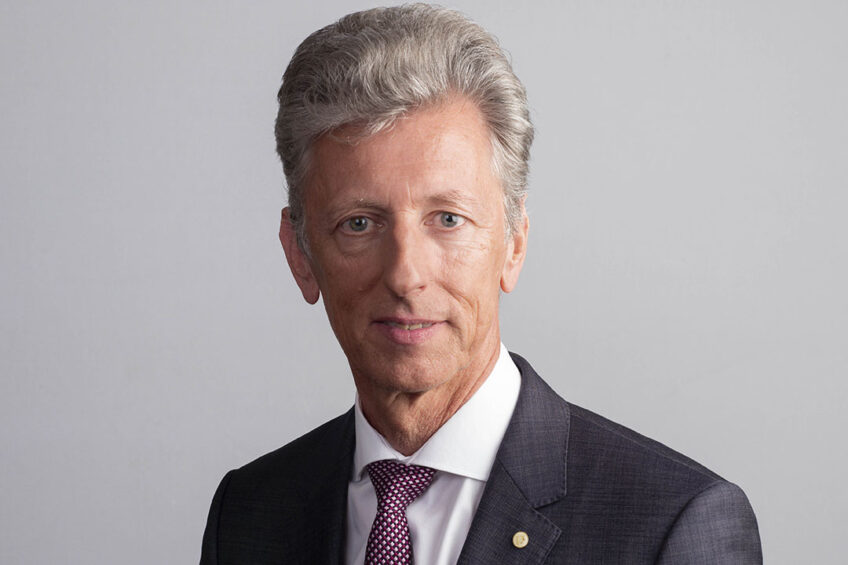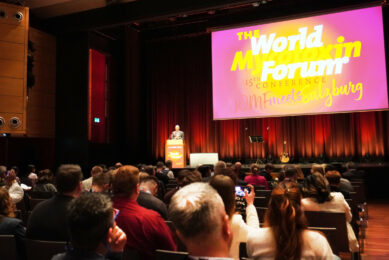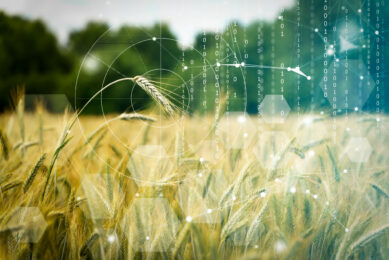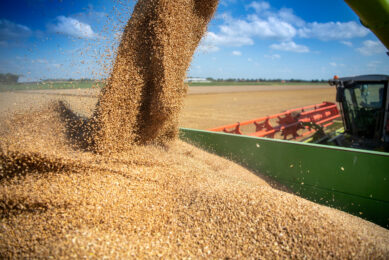Professor Rudolf Krska: “Challenges need to be faced with cutting edge research”

The World Mycotoxin Forum took place 9-11 October in Antwerp, Belgium this year and covered everything you need to know about the world of mycotoxins. General conference chair Prof. Rudolf Krska talks about the event and gives his views on mycotoxins and the challenges faced by the agriculture, food and feed industry.
MYCOTOXIN SPECIAL 2023 – read all articles
What is the main purpose for the World Mycotoxin Forum?
Let me first point out that the World Mycotoxin Forum (WMF) has established itself as a leading international networking conference series on mycotoxins where food and feed industry representatives meet with representatives from government, food authorities, food and feed industry and with people from universities and other research institutions from around the world. The WMF gradually moved from food and feed related technological topics to international and regulatory issues and to mitigation strategies based on fungal and plant genetics, big data-based decision support tools and sustainable solutions in view of climate change. The WMF is dedicated to assembling the world’s best minds across the spectrum of integrated strategies ensuring the safety and security of the food and feed supply chain. It is now 50 years since the first international conference on mycotoxins (organised by IPUAC in 1972), plus 12 editions of WMF events organised between 2001 and 2022, and much progress has been made in the prevention, reduction and control of mycotoxins. However, continuous attention and further efforts are still needed to tackle the complex issues of mycotoxin contamination especially in view of climate change and other global challenges on the horizon.
Which topics will be addressed at this year’s conference?
The 14th WMF held in Antwerp, Belgium will address these aforementioned topics and many others in various presentation and discussion formats by giving the floor also to young scientist and representatives from the academia, food authorities and the industry. By doing so, research needs will be identified and connected to ‘real’ scenarios across food and feed chains. Improved exposure and risk assessment, the role of multi-mycotoxin co-occurrence combined with other environmental challenges, emerging technologies and how can they improve mycotoxin control, prevention and reduction in the future will be among the many topics which will be discussed during the WMF which will also include informal brainstorming sessions.
What are the main challenges faced by the agriculture, food and feed industry with regards to mycotoxins?
Let´s see what we hear during the 14th WMF about this question. What is obvious is the fact that prevention and control of mycotoxins remains difficult and the agriculture, food and feed industries continue to be vulnerable to problems of contamination with mycotoxins and other natural toxins. In addition, climate change is increasingly affecting the global mycotoxin map. With annual losses due to mycotoxins estimated by the EU to be at a level of 5-10%, this equates to €1.2-2.4 billion in lost income just on wheat. A reduction in these losses of only 1% could save €12-24 million annually in Europe alone. At the same time the adverse impacts of biotoxins are an important risk factor to food security for the consumers for a world population estimated to pass 9 billion by 2050.
Clearly, the recent and ongoing crises including the COVID-19 pandemic, the war in Ukraine and climate change have also demonstrated the need and importance of resilient food supply systems to ensure a secure and safe food supply. Climate change will continue to affect the formation of mycotoxins. The changing environment impacts on the interaction between organisms, can promote the growth of certain mycotoxin-producing fungi and modify the type and quantity of resulting toxins. Food insecurity is associated with increased risk for several health conditions and with poor chronic disease management. Food insecurity also exposes vulnerable people to food safety issues such as mycotoxin contamination because they will be forced to eat what they might otherwise have rejected. In a resilient food system, also the importance of post-harvest measure has become more obvious. Through the installation of advanced sensor systems, the measured parameters can be linked with biological models for the early prediction of mould and thus mycotoxin formation in the storage so that the silo manager can initiate proper action. Such decision support systems, as developed within the EU project MyToolBox.eu, which I had the pleasure to coordinate, will become more important in the future.
What do you think is needed to overcome the challenges you mentioned?
It has become quite obvious that the agricultural, aquacultural and food industries as well as all citizens who need to be fed in Europe and around the world with nutritious, safe and affordable food in a sustainable economic environment are under some form of threat from mycotoxins. There is an unprecedented demand for multidisciplinary knowledge and action needed to develop integrated innovative approaches to tackle food safety and security issues – and especially in relation to the presence of (emerging) mycotoxins. These challenges need to be faced with cutting edge research and multidisciplinary training of researchers in innovative and integrated control and reduction of mycotoxins in the food and feed. In this context, also the professional training especially of young researchers is of crucial importance and this is why I am very glad to announce the new MSCA Doctoral Network BIOTOXDoc PhD training programme offered by nine top universities from all over Europe which is coordinated by Franz Berthiller from my institute at BOKU Vienna. BIOTOXDoc’s overall aim is to provide the training and research needed to ensure the production of safe food in a world facing climate change, while also pioneering new methods for controlling, mitigating, and assessing the risks posed by mycotoxins and other secondary metabolites.
Professor Rudolf Krska was the general conference chair at this year’s World Mycotoxin Forum in cooperation with his conference co-chair Prof. Chris Elliott. Prof. Krska also gave a presentation titled ‘Toxin-free food (against the backdrop of climate change) during the event.






